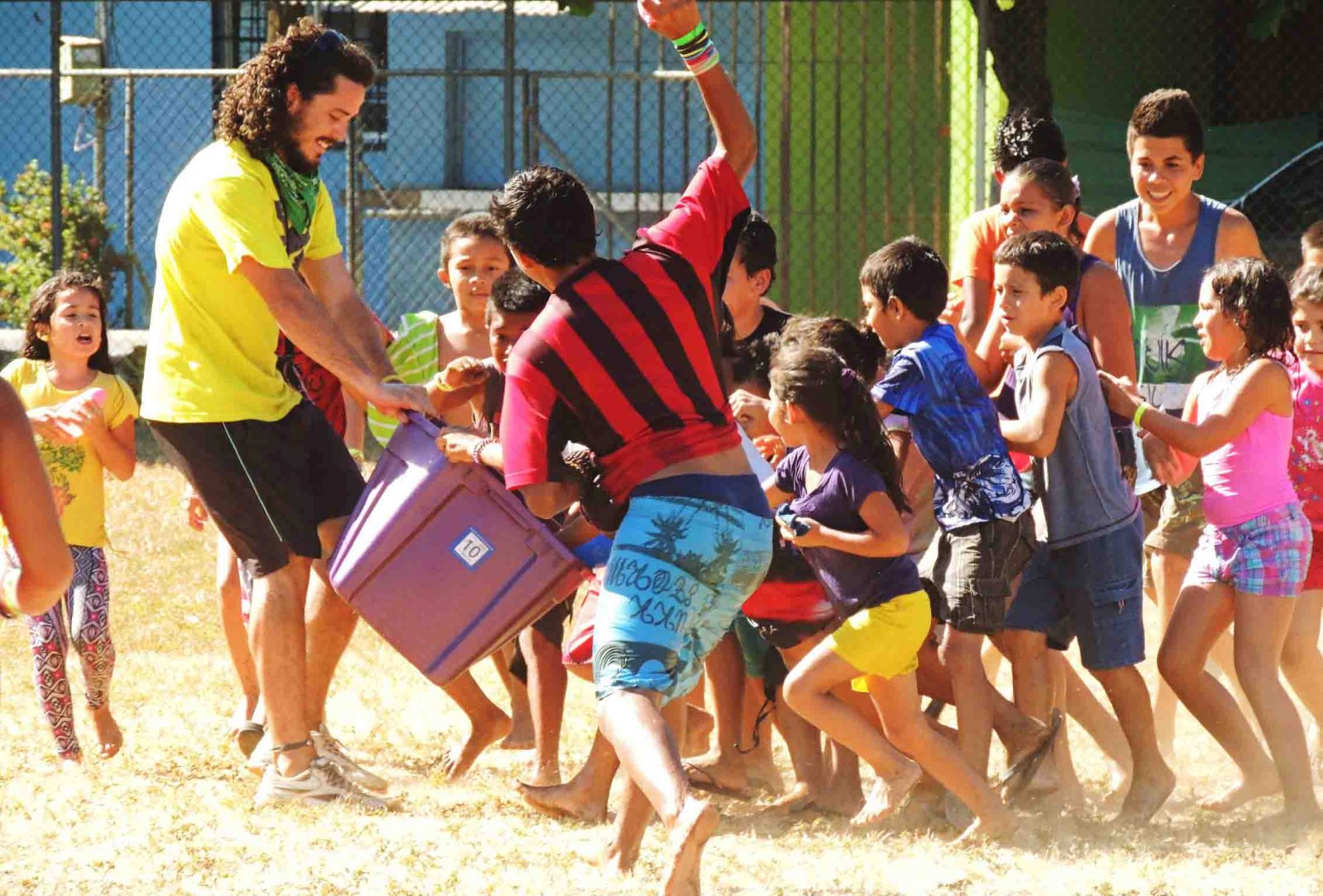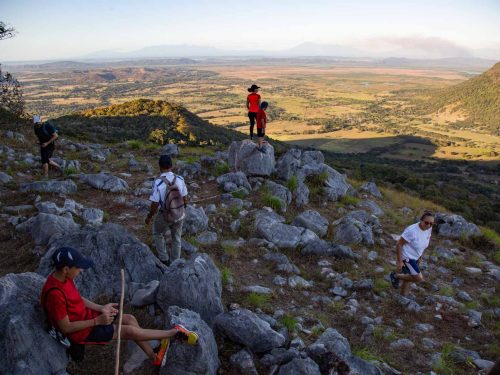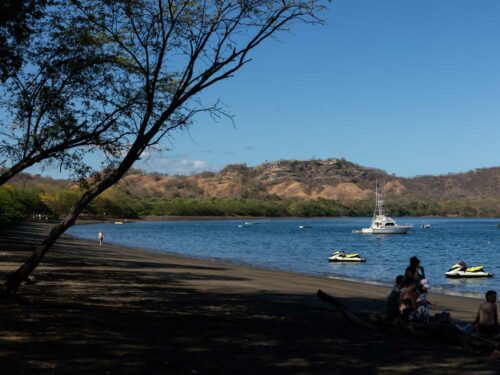
While the Costa Rica-USA Foundation (CRUSA) has been funding national environmental and educational projects for 18 years, its newest initiative, the Guanacaste Community Fund, will focus exclusively on Guanacaste-based societal improvements.
The Fund’s executive director, Steve Mack, appointed by CRUSA’s Governing Board of Directors in August, said he has already distributed multiple grants to Guanacaste projects in the first six months of a three-year effort. All grants distributed must be matched by the receiving organization.
CRUSA, a bi-national foundation formed by Costa Rican and American business and political leaders after US AID left the country in 1996, established a $40 million endowment fund to support the environment, education, science and technology and capacity building projects in Costa Rica. According to Mack, the endowment’s principal has grown to more than $65 million in those 18 years, allowing it to disperse approximately $4 million of interest income annually to community development projects.
CRUSA’s initial efforts focused on environmental protection of the Osa Peninsula, education and water quality. “We are just finishing up a three year focus on revamping the math curriculum, working with the Department of Education,” said Susan Worth, one of five American representatives on the ten-member Board of Directors.
“But $4 million is not a lot of money for all of Costa Rica,” explained Executive Director Mack, an environmental lawyer who has been living and working in Costa Rica for more than 25 years. Many NGO’s and European and North American governments stopped the funding they used to provide for Costa Rican development since other countries have more poverty. “Costa Rica was the darling project for many outside agencies and private foundations for a long time. But now that support has dried up,” Mack said..
As a result, the CRUSA Governing Board of Directors decided to promote philanthropy to expand the reach of its limited funds and test it out in Guanacaste. The Board developed the Guanacaste Community Fund to provide grants matched by local organizations. “We chose Guanacaste,” said Mack, “because it is the poorest part of the country but it also has a lot of economic activity and a lot of communities with organized groups already working on local social problems.” CRUSA established the Guanacaste Community Fund for three years, setting up an operating budget and a fund to grant $100,000 to organizations each year.
Guanacaste Organizations Receive Funds
Mack, the Fund’s only employee, got right to work, moving to Nosara to have a local base, and traveling to visit existing educational and environmental improvement projects. He was impressed with Creciendo Juntos in Carrillo/Filadelfia, which has focused on supporting public schools since its creation by the Peninsula Papagayo development corporation. Now, Creciendo Juntos has developed and operates a children’s health clinic.
“In an agreement with the Caja, they can operate as an EBAIS. And they have an agreement with an NGO, the Children’s Well Being Foundation, to provide a doctor, psychologist and dentist on site daily. Before this project, there was a doctor in that community one morning a month. We matched the $14,000 they raised at a golf tournament at the Four Seasons Hotel to support the clinic,” said Mack.
In Hojancha, Mack reported that CRUSA’s Guanacaste Fund made a $10,000 grant to the Union Agroforestal Chorotega, which is a coalition of independent farmers. They promote reforestation, provide woodworking skills training for cabinet makers and host a commercial fair for small farming businesses.
In Nosara, the Guanacaste Fund recently granted $15,000 in matching funds to the Nosara Recycling and Education Center, $5,000 to the Escuelita de Verano and $2,500 to the Nosara Food Bank.
Jessica Sheffield, Vice President of the Nosara Waste and Recycling Association, said the group was very pleased to receive one of the Guanacaste Fund’s first grants. “We raised $15,000 from about five or six private donors to get the matching grant,” she said. “We told people about the matching funds and that definitely motivated some of the giving.”
With this $30,000 budget, the new Recycling Center has funds to pay to bring electricity to the center, a water pump, a trash compactor, a glass breaker, sorting tables and trash bags and a manager to oversee the center.
“With the CRUSA Guanacaste Fund grant, you have to have your cash raised up front. But the matching money is great. It is so important to give money to the people actually working and doing things locally. You can see the impact right away on the challenges the community is facing,” Sheffield said.
Mack said he is asking all Guanacaste communities for proposals to support other projects. In the Nosara area, he already is holding discussions with the David Kitson Library, the Costas Verdes trees on the beach project and the Ostional Secundaria building project to consider granting matching funds.
In Tamarindo/Brasilito area, Mack and the Guanacaste Fund have promoted the creation of a collaborative of four groups focused on education– Amigos de Educacion, which provides public school support; the non-profit private school La Paz’s scholarship fund; CEPIA, which provides vocational training for single mothers; and Abriendo Mentes, which trains mothers and their children in English skills. “These groups are sharing resources now and two of them are doing joint fundraising. CRUSA’s Guanacaste Fund will match what they raise,” Mack said.
Mack is encouraging “donor advised funds” affiliated with the Guanacaste Fund, in which donors designate exactly which project their money will support. The Guanacaste Fund Board also will raise its own budget, allowing for a sustaining fund of $100,000 available for grantees each year, beyond CRUSA’s three-year commitment.
Donations to the Guanacaste Community Fund can be made through the US 501 c(3) non-profit Amigos of Costa Rica or the Costa Rican – USA Foundation, a Costa Rican legal trust fund. Information is at CRUSA’s web page, www.crusa.cr.
Donors with specific interests or organizations interested in applying for a matching grant should contact Steve Mack directly at [email protected] and should visit the organization’s website at www.guanacastefund.org.







Comments